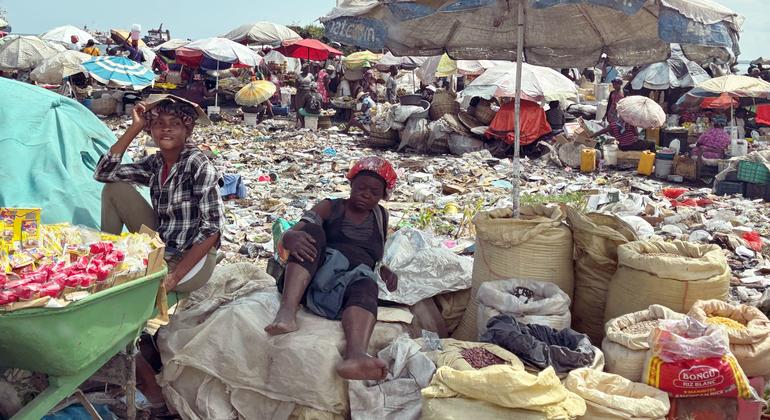The situation in Haiti continues to worsen, affected by a concerning increase in armed violence, which has forced over a million people to flee their homes and is leading hunger to unprecedented levels. A recent report from the World Food Programme (WFP) warns that by June 2025, around 5.7 million Haitians, more than half of the population, will experience acute food insecurity. Of these, over two million will be in an emergency situation, and around 8,400 people are in catastrophic conditions due to extreme food shortages and the high risk of famine.
In Port-au-Prince, many displaced families have sought refuge in schools and public buildings, facing precarious conditions of overcrowding and limited access to basic resources such as clean water, food, and medical care. Despite efforts from the WFP and other organizations, the humanitarian response remains inadequate. The WFP director in Haiti, Wanja Kaaria, expressed that the situation is critical and international aid is urgent, as today, “we are simply struggling to contain hunger.”
Since the beginning of 2025, 740,000 hot meals have been provided to displaced people, in addition to cash assistance and programs to combat child malnutrition. Despite challenges, the agency has managed to reach areas controlled by armed groups, providing aid to isolated communities like Croix-des-Bouquets and Cité Soleil.
The UN Children’s Fund (UNICEF) has also raised alarm about the critical situation facing children in Haiti. Over a million children are at risk of critical food insecurity, and approximately 2.85 million children are experiencing high and sustained levels of food insecurity. Geeta Narayan, UNICEF representative in Haiti, emphasized that violence, extreme poverty, and economic crisis prevent parents from providing their children with the necessities for a dignified life.
As the population’s needs increase, the humanitarian response is severely compromised by lack of funding. The WFP urgently needs $53.7 million to continue its operations in the next six months, and UNICEF’s nutrition program faces a 70% deficit in its budget.
Referrer: MiMub in Spanish










